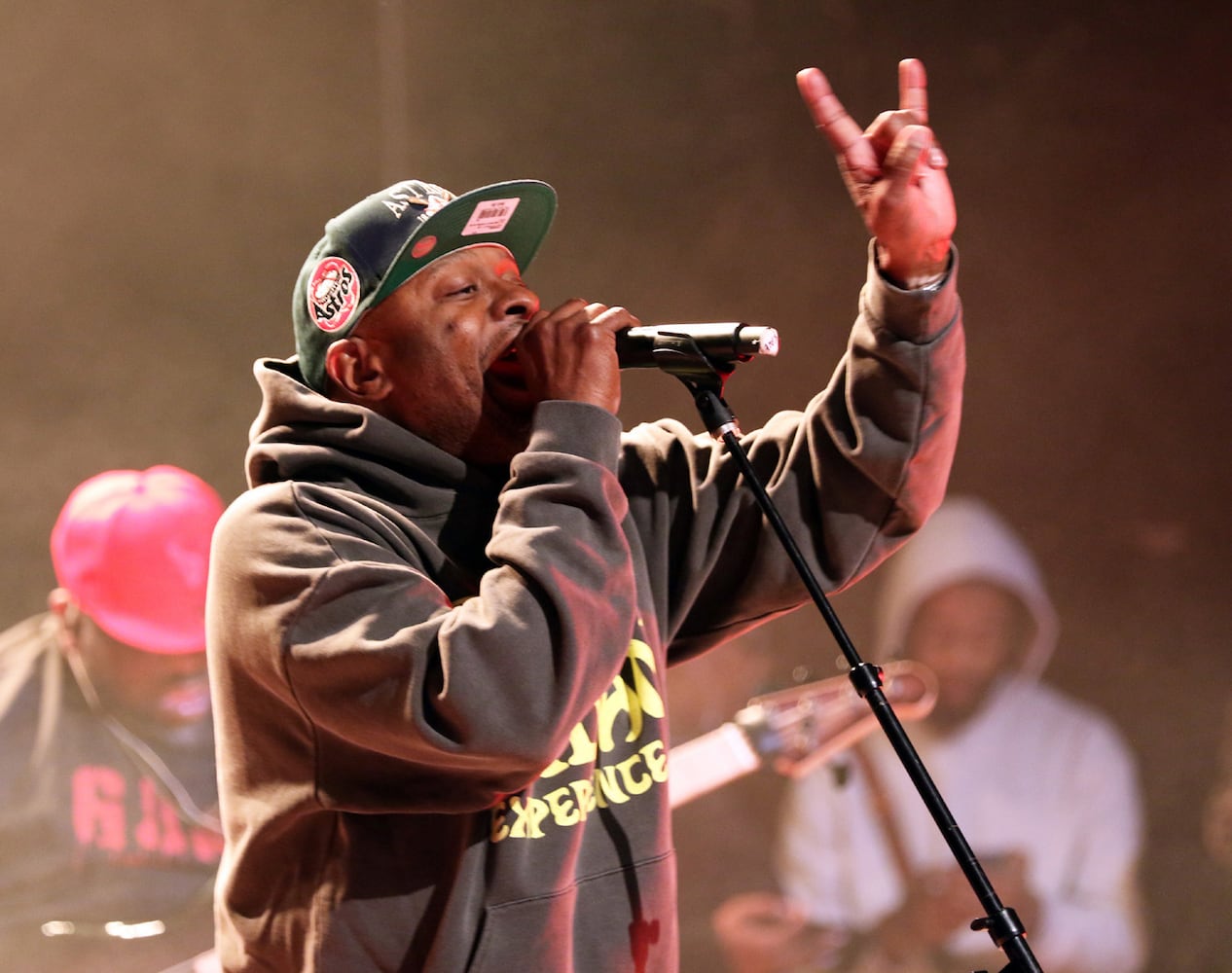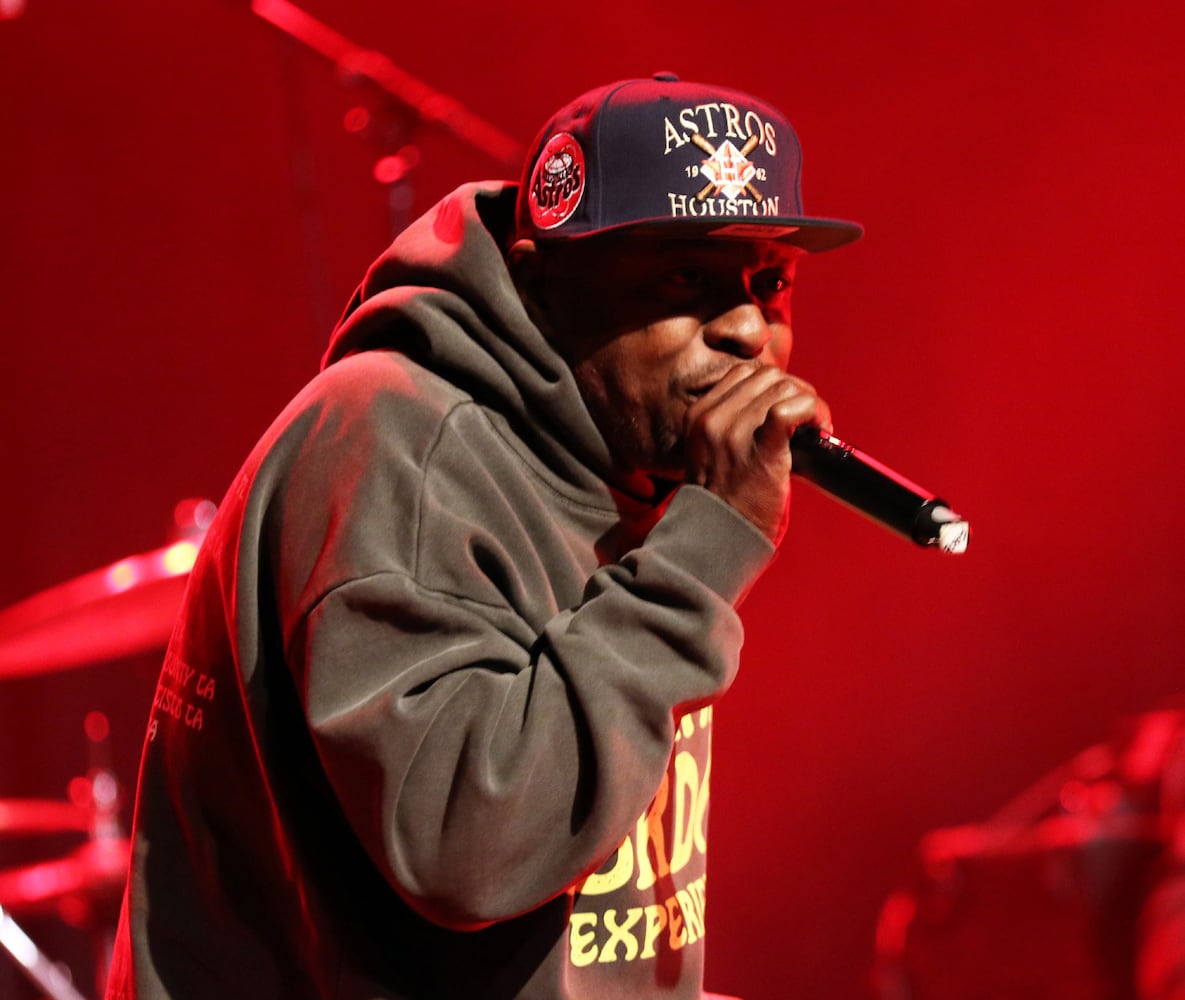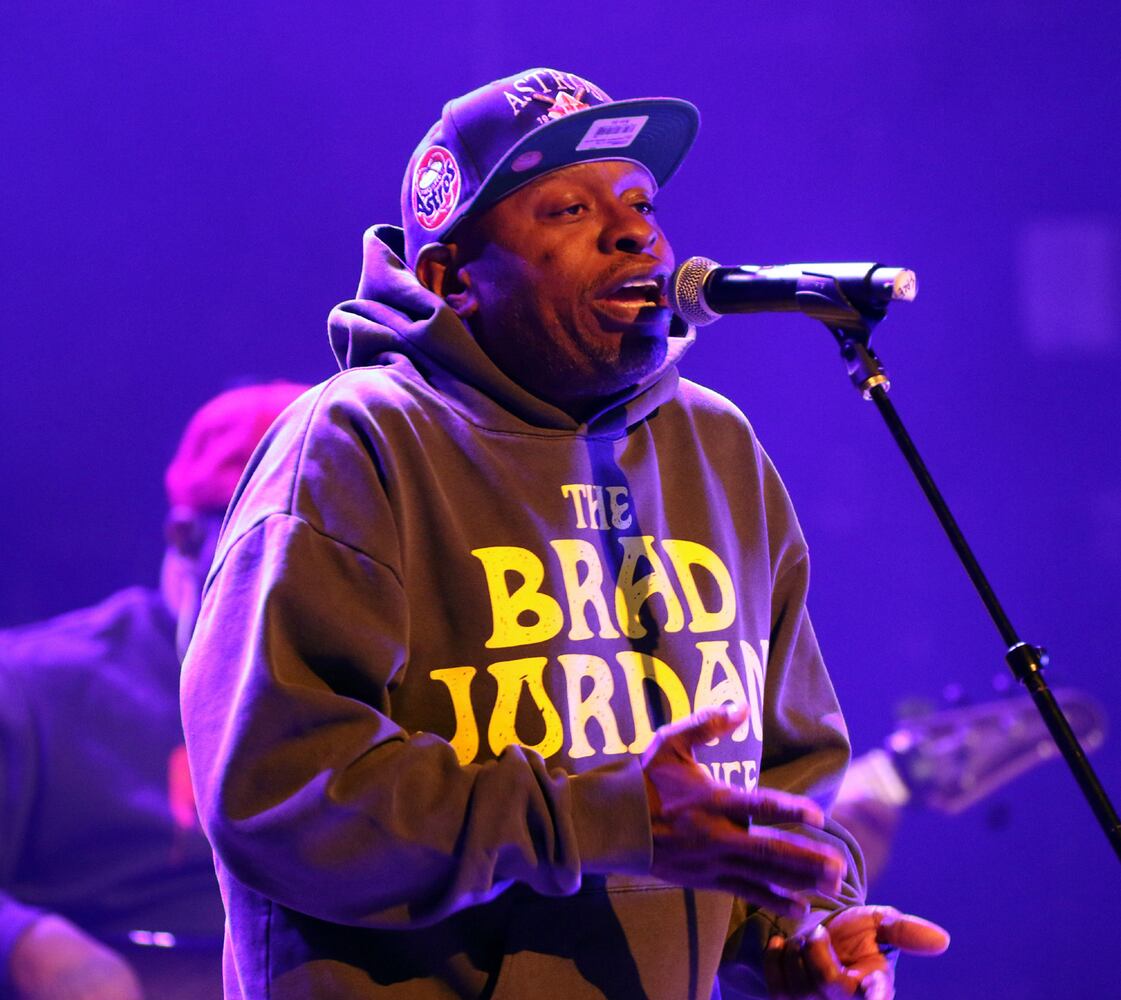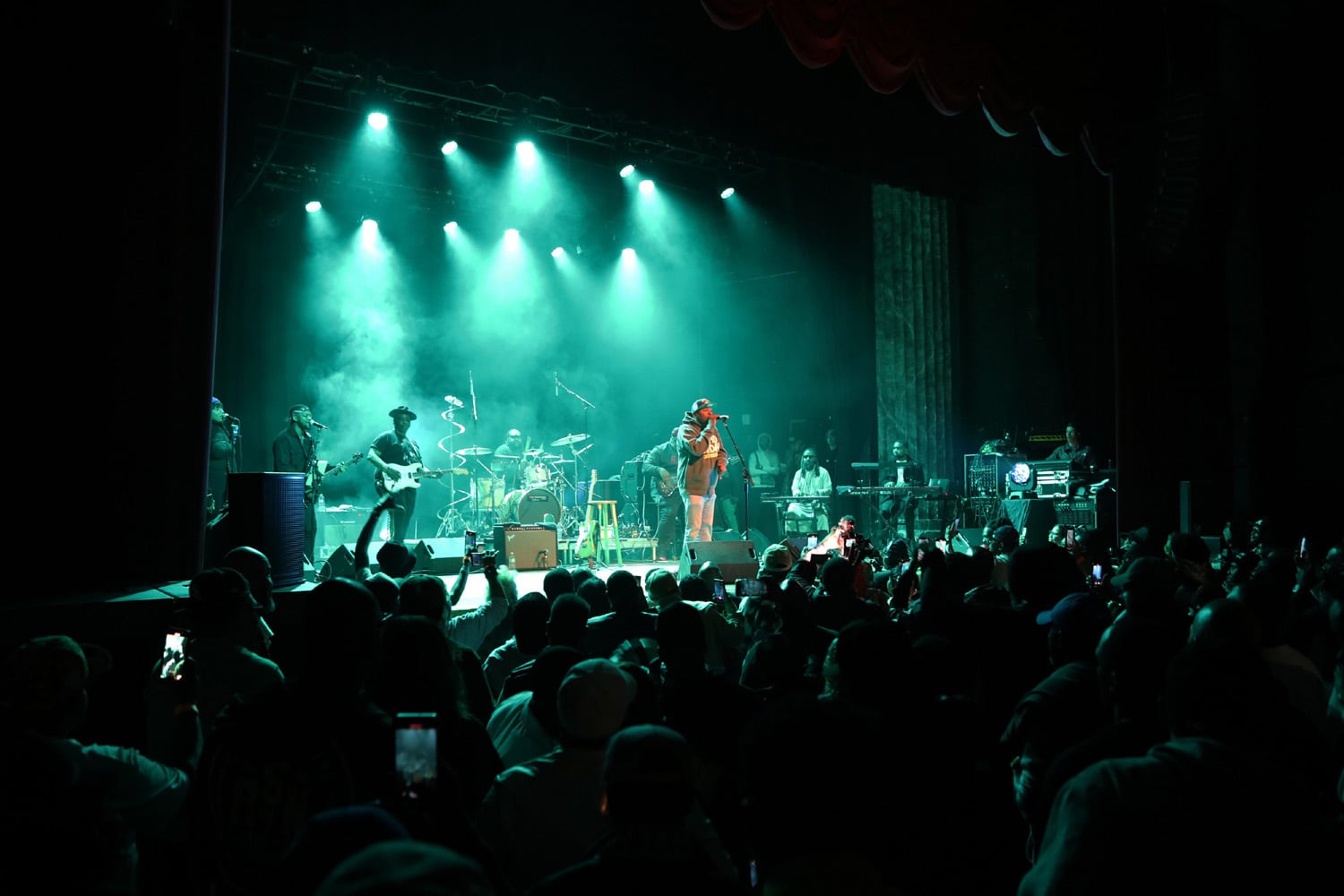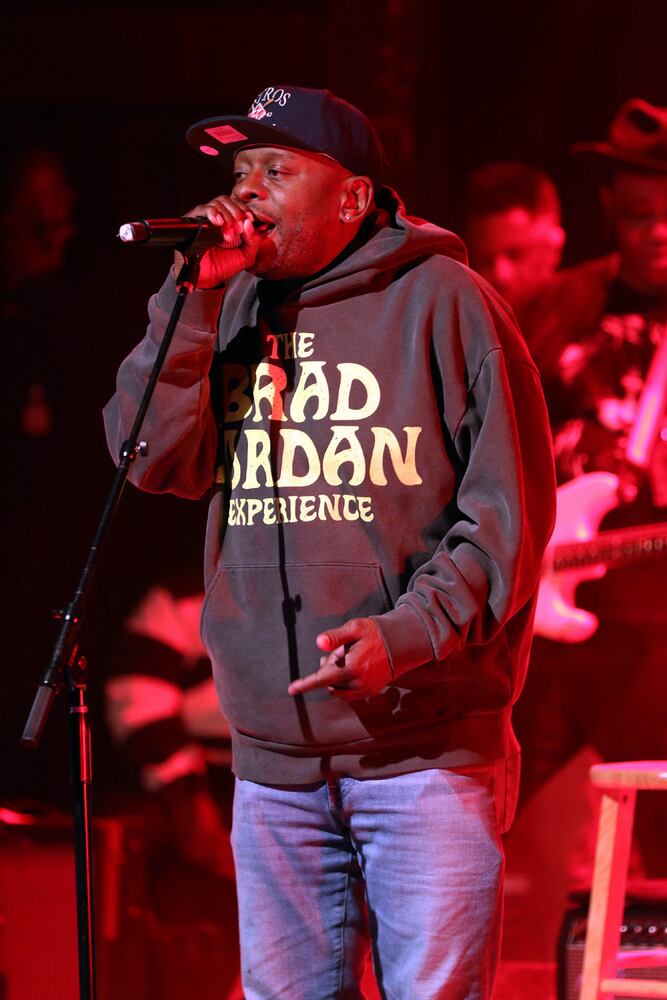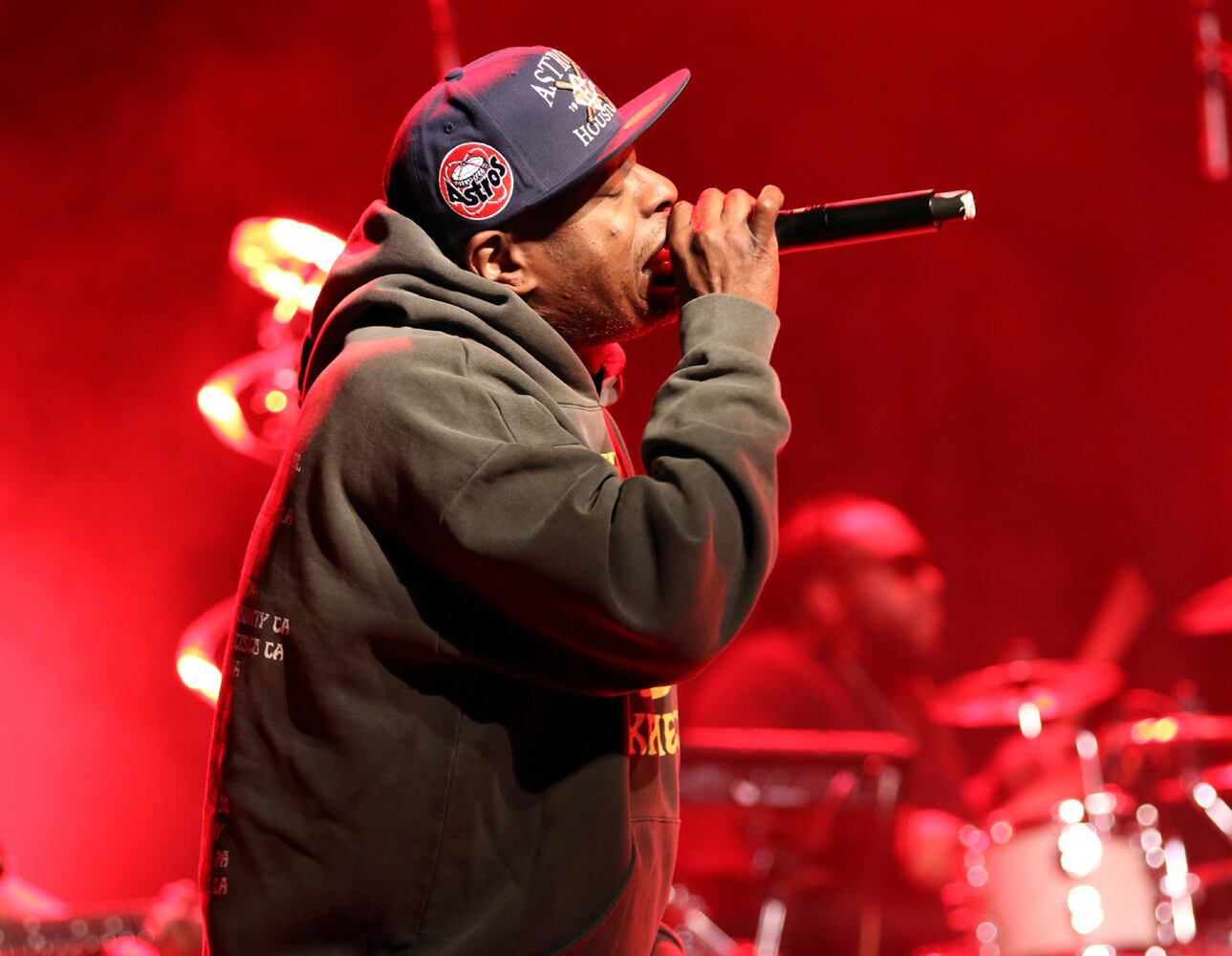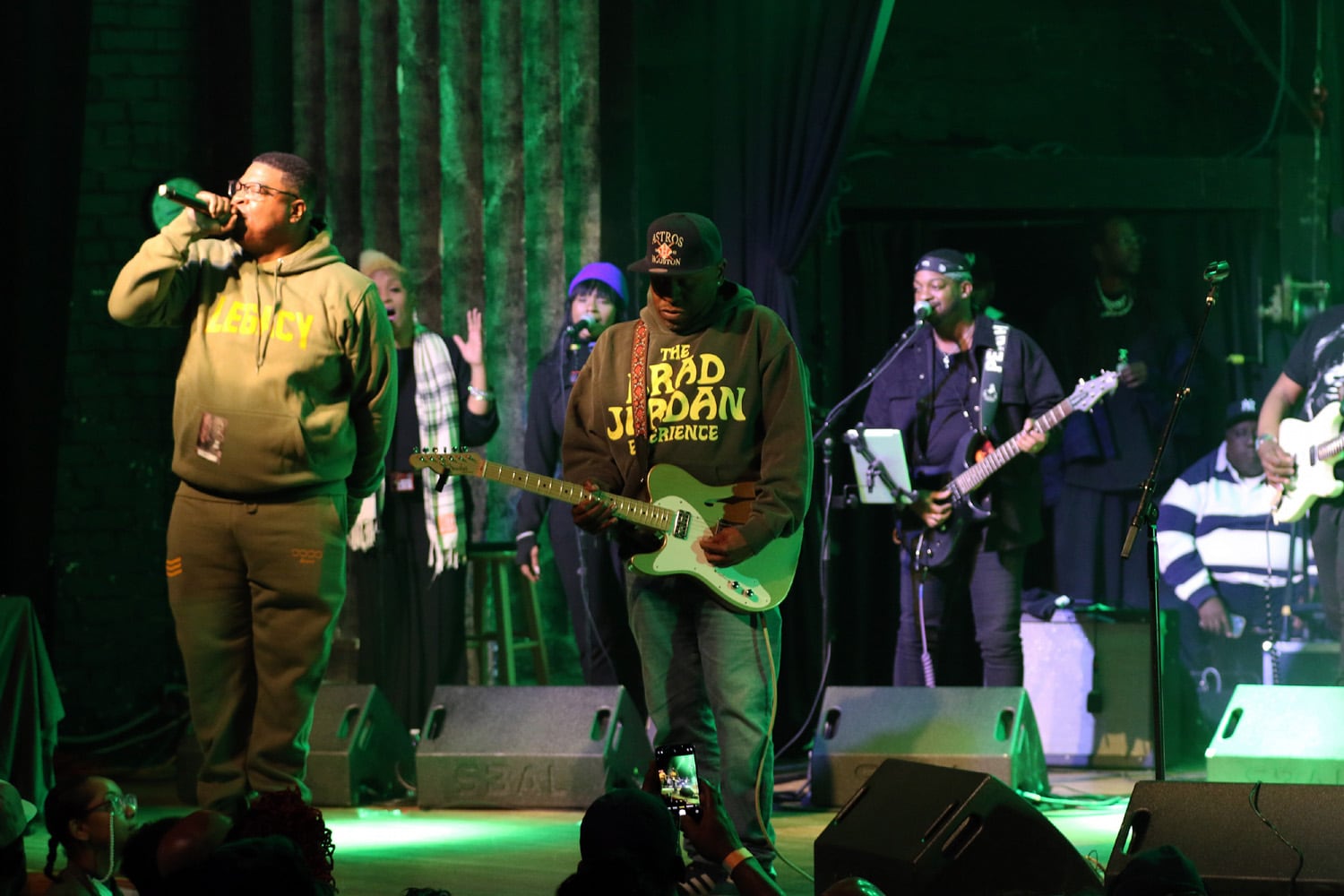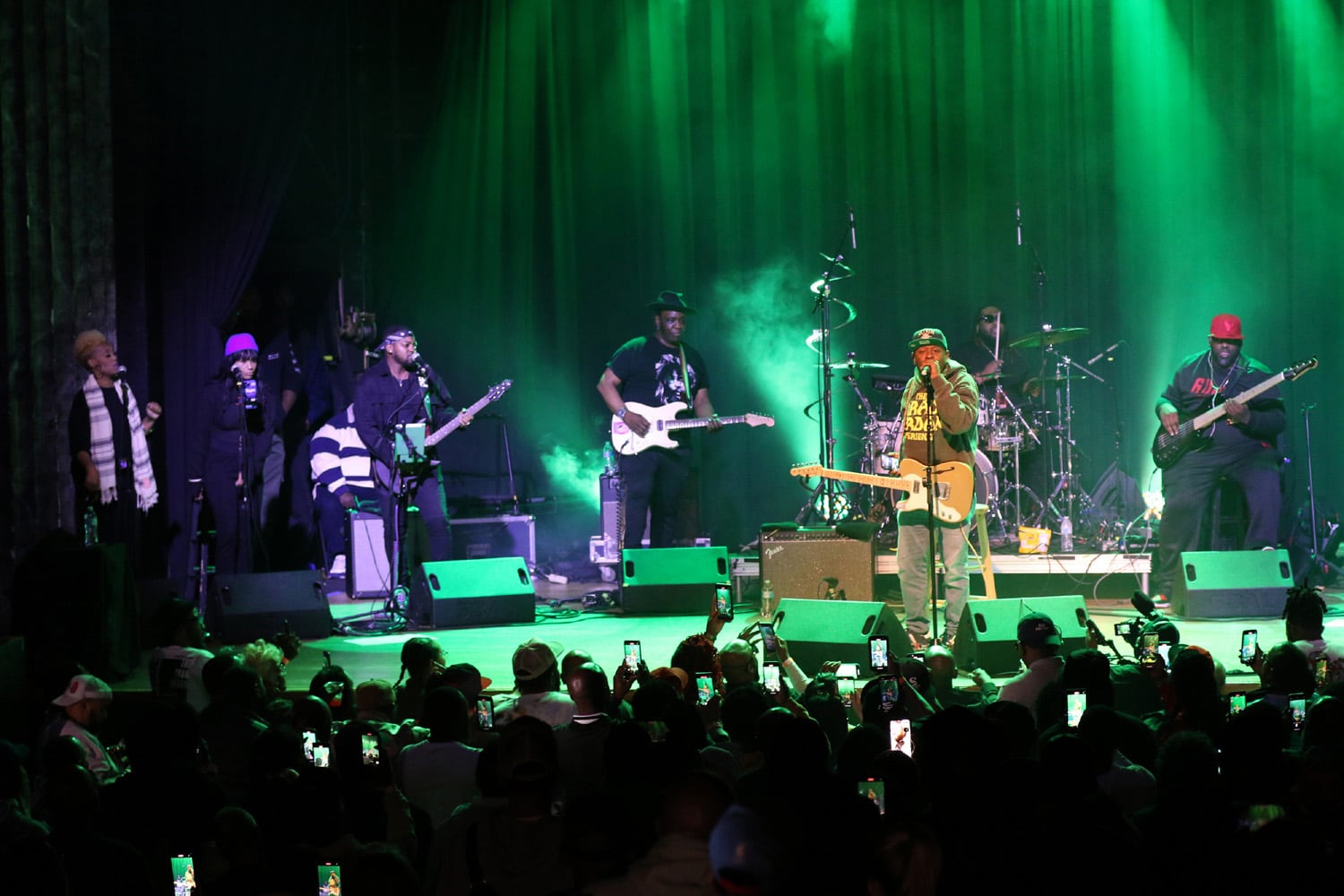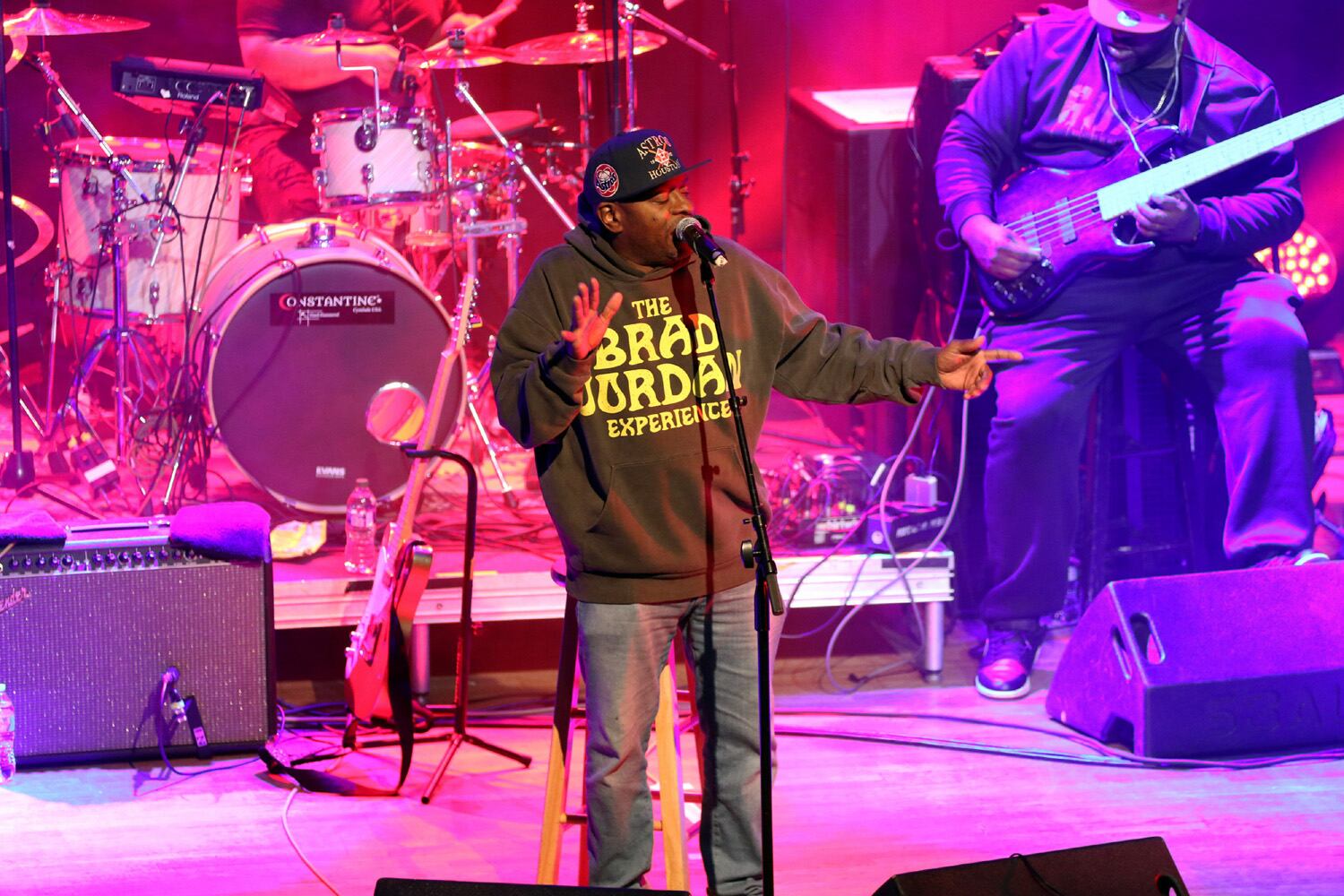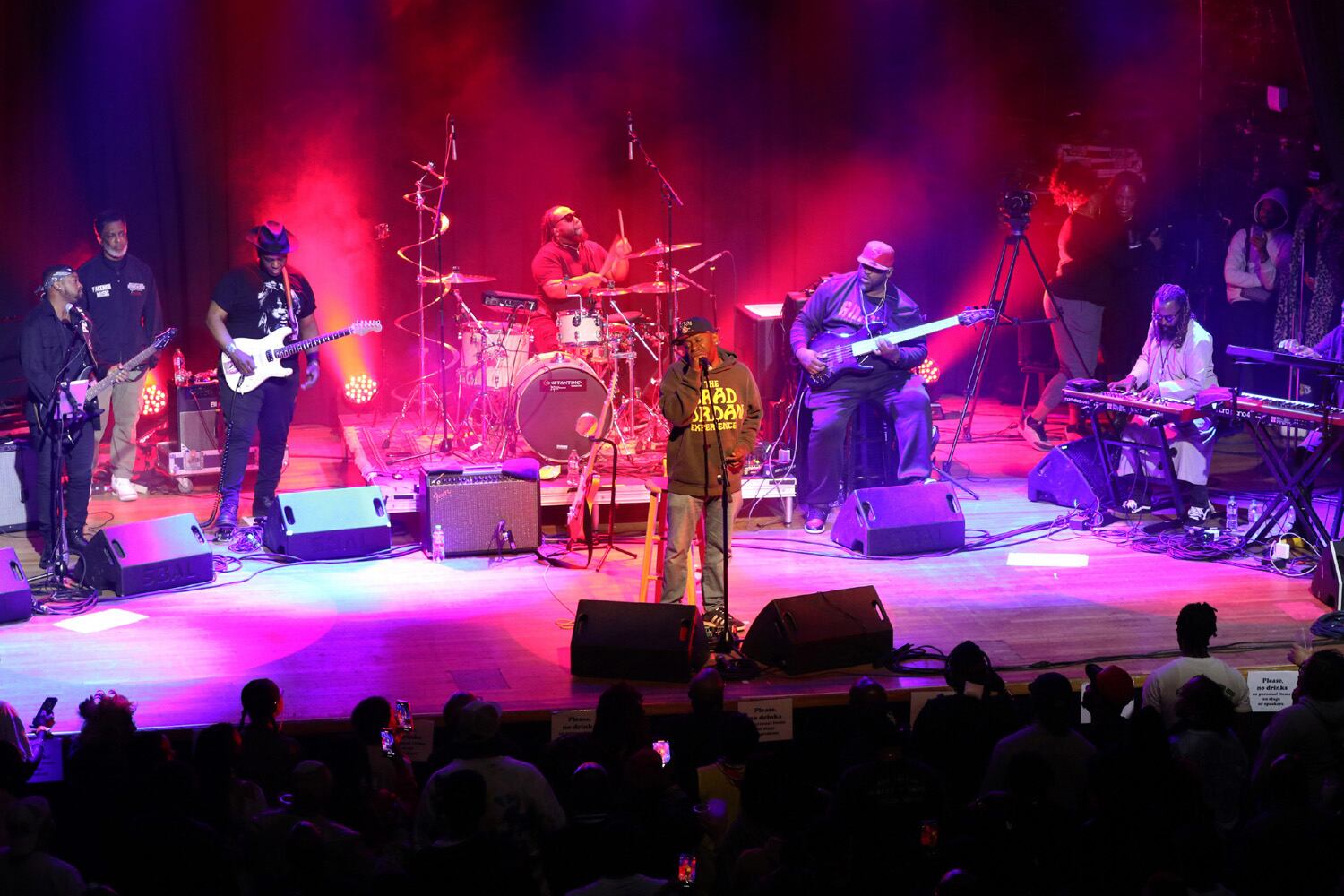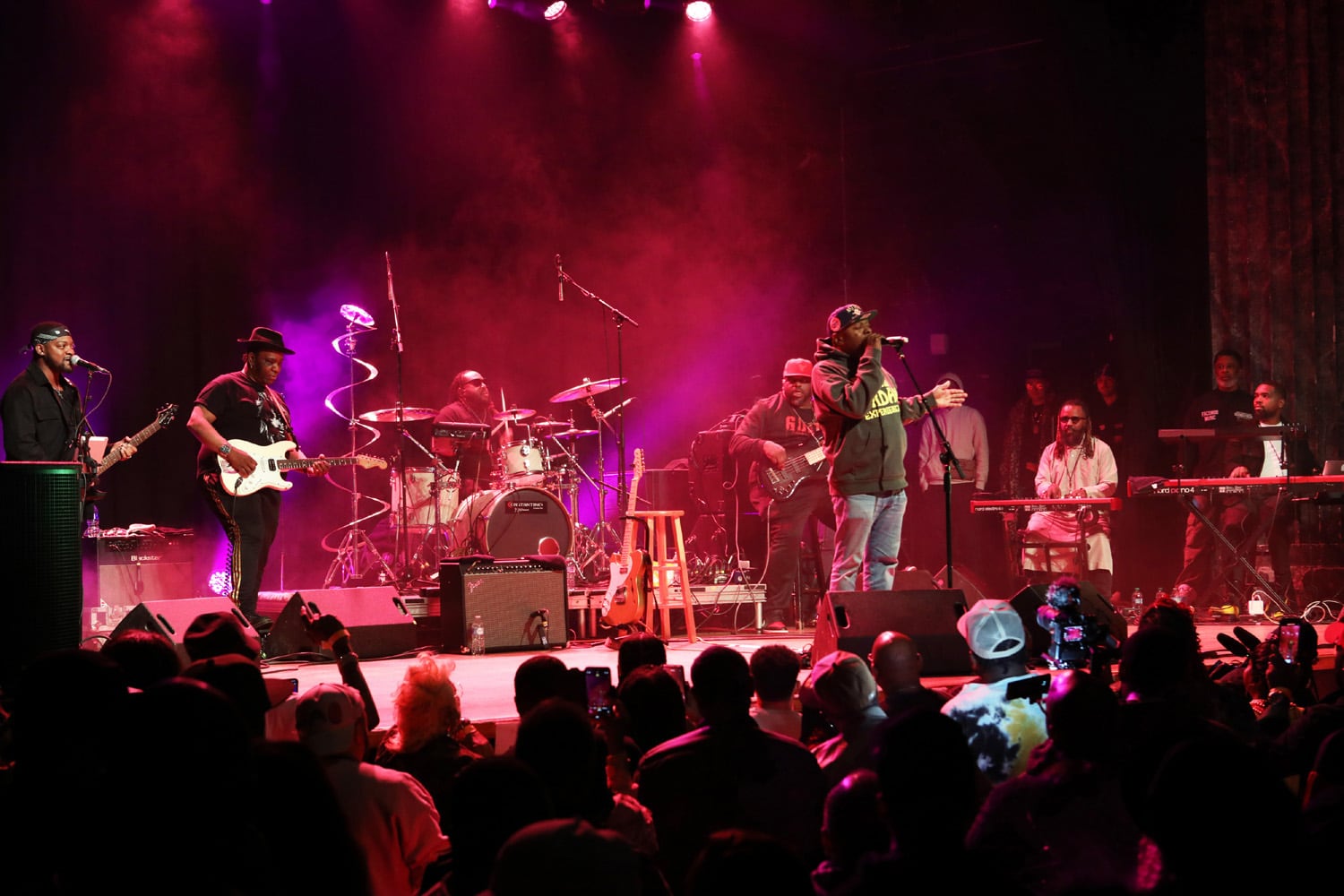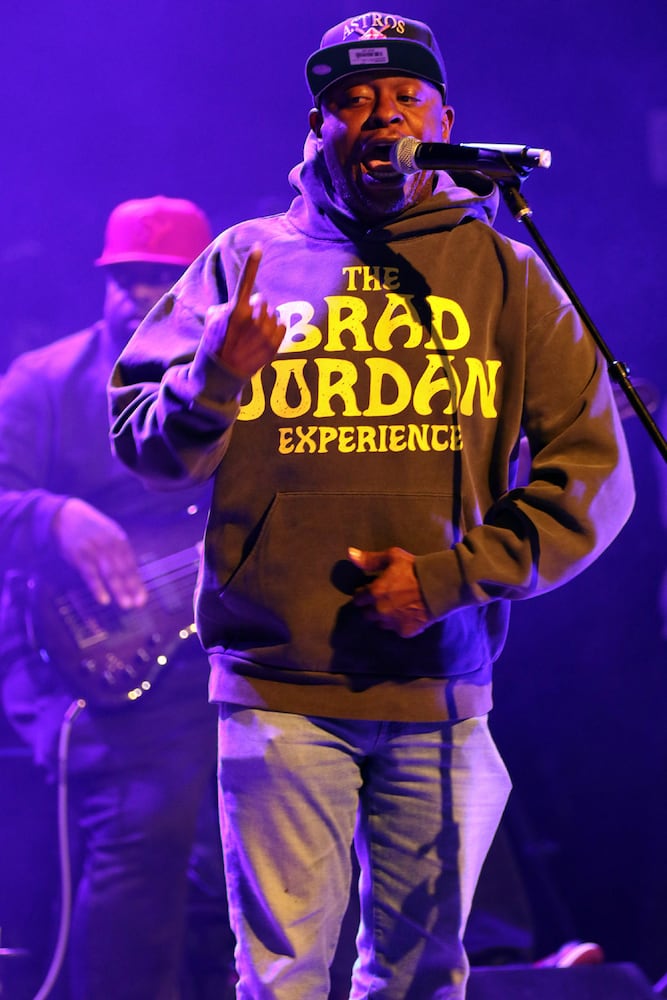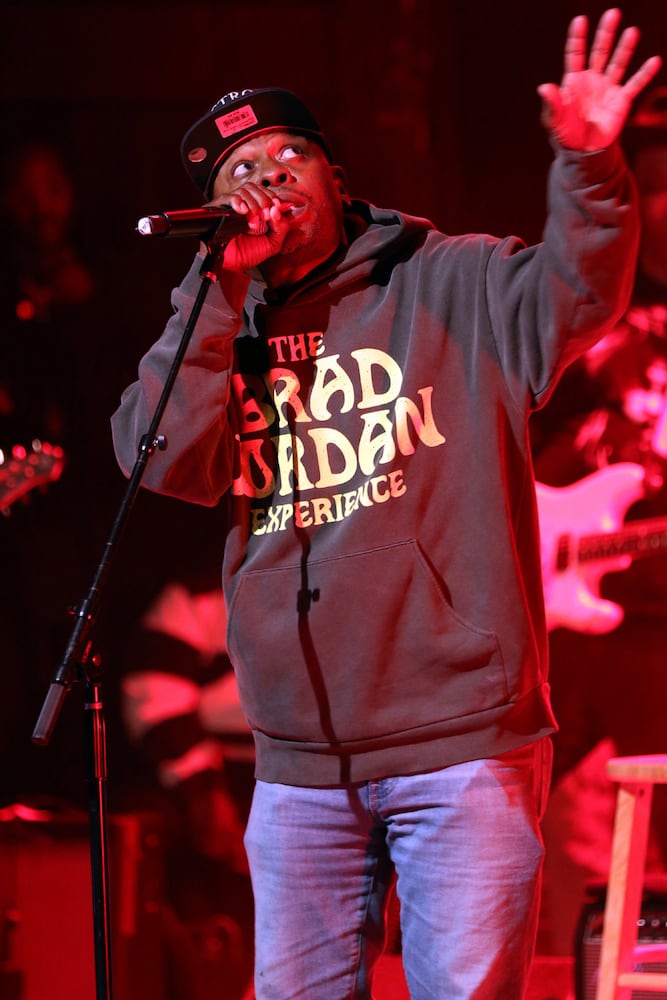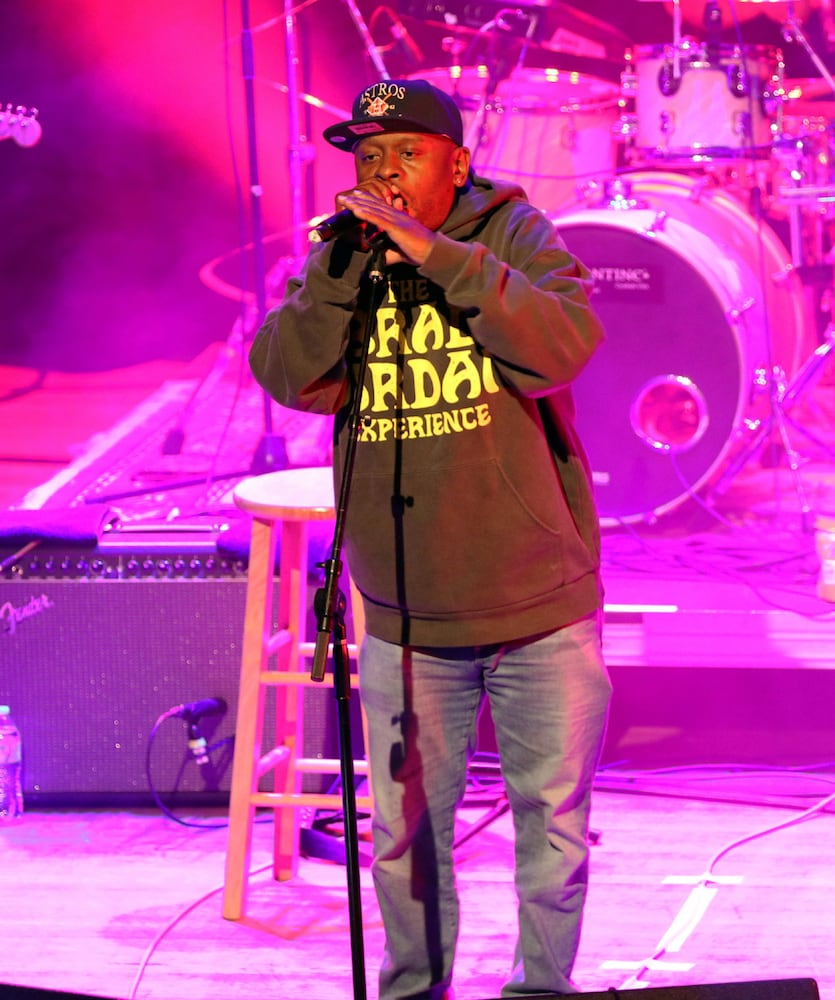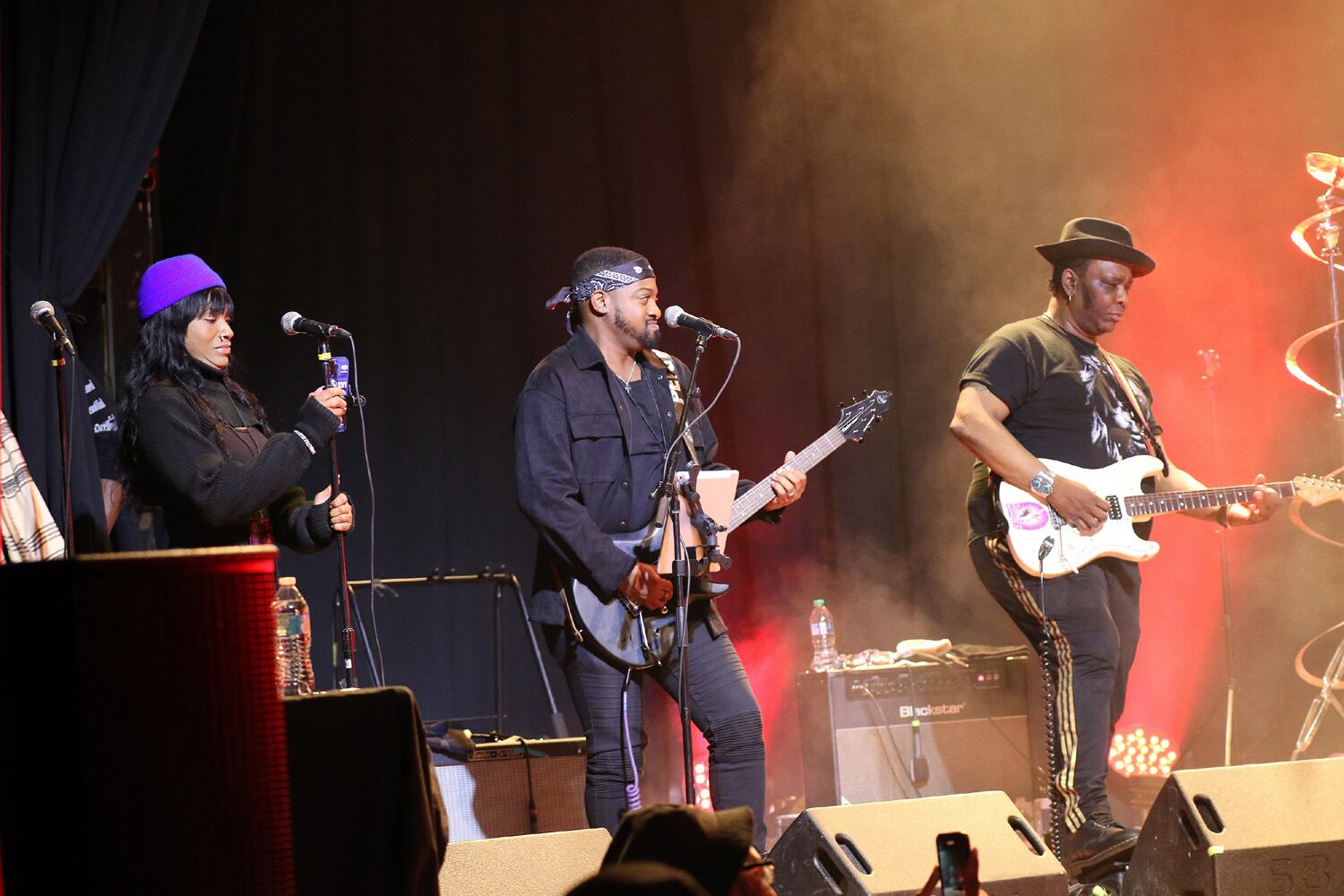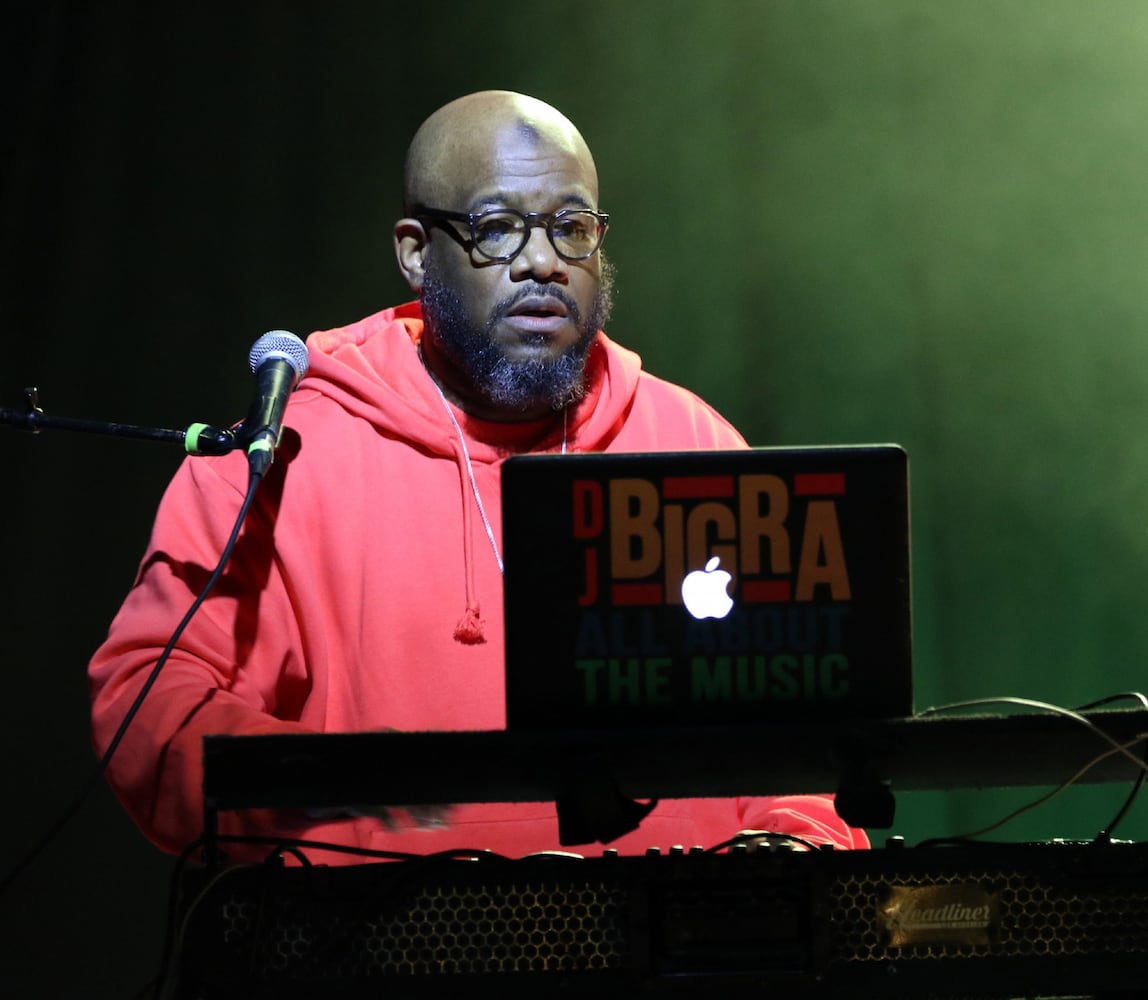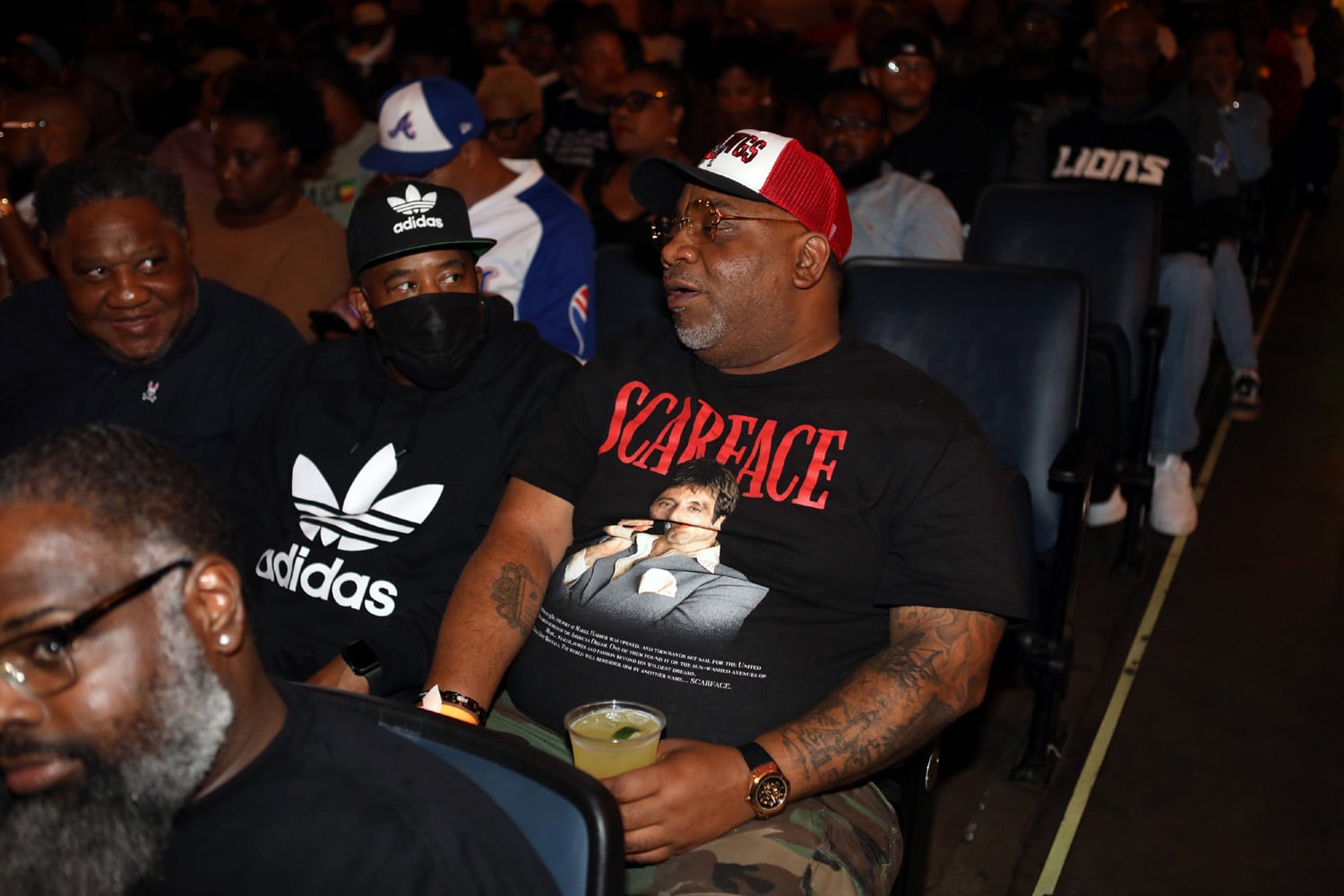“We’re gonna wake him up!” Brad “Scarface” Jordan declared on stage while performing the 1991 rap classic, “Mind Is Playing Tricks on Me,” during his March 12 performance at Atlanta’s Variety Playhouse.
He’s talking about his friend and Geto Boys group mate, Bushwick Bill, who died in 2019, and has perhaps the most haunting verse on the song. Scarface wrote and produced the track almost in its entirety, except for fellow Geto Boy Willie D’s verse. He asked the crowd to throw two fingers in the air in memory of Bill as he performed it, affirming it’s “still jamming after 30-plus years.” The audience eagerly complied, rapping Bill’s final verse aloud, word for word. It was a moment that showcased not only the staying power of the song, but Scarface’s immense talent.
When Scarface appeared on NPR’s Tiny Desk Concerts in December 2023, it felt overdue. The Houston legend has long been revered not only as a “rapper’s rapper” but also as a talented musician in recent years, playing guitar — a skill taught by his blues-playing uncles growing up in South Acres, Houston — at his shows. So, the announcement of The Brad “Scarface” Jordan: Behind The Desk Experience tour, a few months after his impactful 2023 Tiny Desk appearance, which Tiny Desk producer DJ Cuzzin B described as “the best hip-hop Tiny Desk we’ve ever put out,” felt rightly timed.
Never mind that in 2022, after receiving a life-saving kidney from his son, Scarface embarked on a 22-city farewell tour. After his incredible Tiny Desk and a resurgence in appreciation for classic rap acts, his years-long claims of retirement felt premature.
“I’m a musician,” Scarface asserted about three-fourths of the way through his set Tuesday. Dressed casually in a ball cap, black hoodie, and jeans, Scarface insisted rhyming was mostly a viable pathway for him to make music professionally.
Throughout his 90-minute show, he moved energetically across the stage, directing the band before delving into the songs that made him one of rap’s most respected acts. The show felt like both a declaration and a solidification of his immense, yet underappreciated talent. Scarface was visibly savoring the moment, often pausing to appreciate the seven-piece band’s solos, turning away from the crowd to listen intently, and emphatically nodding his head before strolling to the other side of the stage.
“Do you hear it now?” he asked the crowd several times throughout his set, where he performed extended versions of the songs from his Tiny Desk Concert, including “Mary,” “Seen A Man Die,” “Smile,” and “My Block,” along with classics like “Jesse James,” “Money Makes the World Go Round,” and “Hot Seat.” His question seemed to refer to both the band’s musicality and his own talents, too often overlooked in discussions about hip-hop’s elite talents.
Scarface started his career in the 1980s, DJing around Houston as DJ Akshen before signing to record executive J. Prince’s Rap-A-Lot label and eventually joining legendary rap group Geto Boys. The group released “Grip It! On That Other Level” in 1989, helping to define not only Houston’s but the South’s hip-hop sound as a whole.
But Scarface would begin his ascension into the upper echelon of music with his powerful 1991 debut, “Mr. Scarface Is Back,” an album widely considered one of the best solo debuts in rap history. The project arrived just a few months after Geto Boys’ third album, “We Can’t Be Stopped,” which produced the infamous rap classic, “Mind Playing Tricks on Me.” The song is eerie and affecting, thoughtful and poignant in its approach and delivery, much like Scarface’s lengthy catalog. From 1994′s classic “The Diary,” to 1996′s “The Untouchable,” which hit No. 1 on Billboard Hot 100, to his last solo release, 2015′s “Deeply Rooted,” Scarface’s discography is widely considered to be among the best in hip-hop history, and his influence runs deep.
He’s more than the pioneer of introspective, storytelling rap, addressing personal battles and societal injustices — a style embraced by 2Pac, Kid Cudi, Mac Miller and Kendrick Lamar. His insightful, self-reflective lyricism also established the foundations of street rap, impacting artists like Jay-Z, Nas, and Atlanta’s T.I., with whom he’s collaborated. As Def Jam South’s president, Scarface oversaw the signing of Atlanta superstar Ludacris, marking his significant influence on the music scene.
“I have a lot of friends in Atlanta,” he mentioned about halfway through the show, before pointing to Grammy-winning Atlanta rapper 2 Chainz, watching from the side of the stage. Actor Omar Epps is there too, and they briefly wave before retreating to enjoy the rest of the show. Later, Killer Mike emerges, and Scarface congratulates him on his recent Grammy sweep, earning a smile and hug from Mike, who’s long lauded Scarface as one of his favorite artists of all time.
As the show nears its end, Scarface lingered on stage, basking in what feels like the zenith of his long career. The crowd, reluctant for it to end, chants for his 1991 classic, “Money and the Power.” He complies, cues the band, delivers the chorus, tosses his hat into the crowd, and exits the stage. In a night of powerful music and raw emotion, Scarface not only revisited his roots but also reminded everyone in attendance why he’s a legend.
About the Author
Keep Reading
The Latest
Featured
